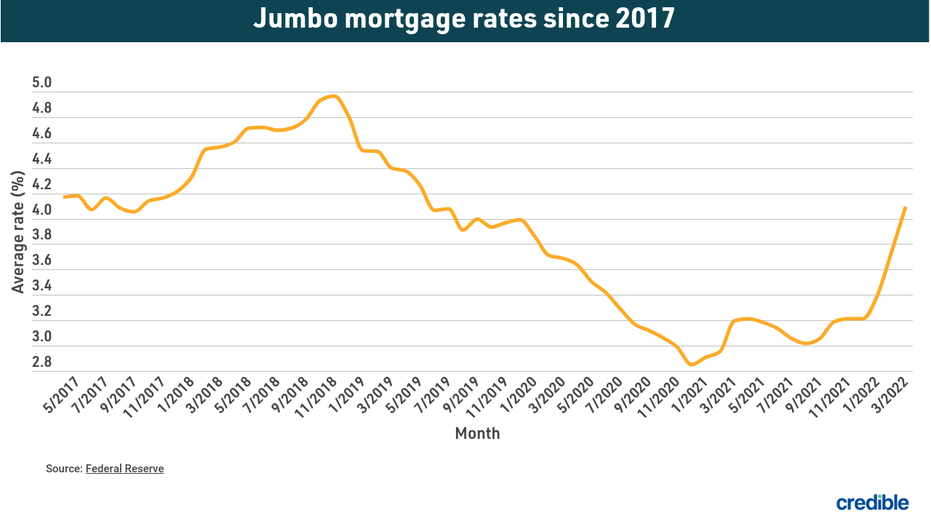Jumbo Loan: Funding Solutions for Homes Above Conforming Boundaries
Jumbo Loan: Funding Solutions for Homes Above Conforming Boundaries
Blog Article
Exploring the Benefits and Characteristics of Jumbo Loans for Your Next Home Purchase Decision
As the genuine estate market evolves, recognizing the ins and outs of big financings comes to be significantly significant for prospective property buyers taking into consideration high-value residential properties. To completely appreciate just how big lendings can influence your home purchase technique, it is crucial to explore their essential features and benefits in greater information.
What Is a Jumbo Loan?

Jumbo fundings are often utilized by buyers looking for to acquire high-value residential or commercial properties or homes in pricey markets. jumbo loan. Given the bigger quantities obtained, lenders normally enforce stricter credit requirements, including greater credit rating, lower debt-to-income proportions, and bigger deposits. The rates of interest on big financings might be a little higher than those on adapting fundings, showing the boosted risk for loan providers
In addition, the approval procedure for a big financing can be much more taxing and complicated, as loan providers need considerable documents to analyze the customer's economic security. Understanding these nuances is important for prospective property owners thinking about a big funding for their residential property funding requirements.
Key Advantages of Jumbo Loans
One significant advantage of jumbo loans is their capacity to fund higher-priced homes that go beyond adjusting loan limitations. This feature makes them an attractive choice for customers wanting to acquire high-end homes or homes in high-cost areas where prices generally go beyond standard finance limits.
Additionally, big loans frequently include flexible terms and competitive passion prices, enabling debtors to tailor their financing to suit their one-of-a-kind financial circumstances. jumbo loan. This versatility can consist of choices for variable-rate mortgages (ARMs) or fixed-rate financings, supplying buyers with the capability to manage their month-to-month payments according to their preferences
Another benefit is that big lendings do not require private home loan insurance policy (PMI), which can considerably reduce the total price of the financing. With PMI commonly being a significant expenditure for conventional fundings with low down repayments, preventing it can result in considerable cost savings over time.
Additionally, debtors of big loans commonly have accessibility to higher loan quantities, enabling them to spend in buildings that fulfill their way of life requires. This accessibility empowers buyers to act decisively in competitive property markets, protecting their preferred homes a lot more effectively. In general, big car loans offer vital benefits for those seeking to fund premium buildings.
Eligibility Needs for Jumbo Loans
Jumbo financings include certain eligibility requirements that possible borrowers need to satisfy to protect funding for high-value homes. Unlike traditional loans, which have actually established restrictions based on the adapting car loan restrictions established by government-sponsored entities, jumbo finances go beyond these thresholds, necessitating stricter requirements.

Furthermore, jumbo finances frequently require a considerable down repayment, usually varying from 10% to 20% of the purchase price, relying on the loan provider's policies and the consumer's financial situation. Cash money books are likewise taken into consideration, with lots of lenders expecting consumers to have numerous months' worth of home mortgage repayments straight from the source readily offered. Finally, thorough documents of income and assets will be required to sustain the lending application. Fulfilling these eligibility requirements can position debtors favorably in protecting a big lending for their desired building.
Contrasting Jumbo Fundings to Traditional Fundings
Understanding the distinctions between standard fundings and big fundings is crucial for property buyers navigating the high-end realty market. Jumbo fundings exceed the conforming car loan restrictions set by the Federal Housing Financing Company (FHFA), which suggests they are not qualified for acquisition by Fannie Mae or Freddie Mac. This leads to different underwriting criteria and requirements for consumers.
On the other hand, conventional financings typically comply with these limitations, permitting a more structured authorization procedure. Big financings often require stricter credit score ratings, larger down payments, and greater financial books. While a standard finance might need a down settlement of as little as 3% to 5%, jumbo financings normally necessitate a minimum of 10% to 20%.
Interest prices on big car loans may vary from those of conventional financings, frequently being somewhat greater as a result of the enhanced threat lending institutions presume - jumbo loan. The capacity for substantial financing can be beneficial for purchasers seeking luxury residential properties. Inevitably, understanding these differences makes it possible for property buyers to make educated choices, straightening their financing alternatives with their distinct buying demands and economic scenarios
Tips for Protecting a Jumbo Funding
Protecting a big loan needs careful planning and prep work, as lenders typically impose stricter needs contrasted to standard loans. To enhance your opportunities of approval, start by inspecting your credit report and dealing with any kind of issues. A score of 700 or higher is commonly preferred, as it demonstrates creditworthiness.
Next, collect your financial paperwork, consisting of income tax return, W-2s, and bank declarations. Lenders generally call for thorough evidence of income and properties to evaluate your capacity to settle the finance. Preserving a reduced debt-to-income (DTI) proportion is likewise vital; purpose for a DTI listed below 43% to enhance your application's competitiveness.
Additionally, take into consideration making a bigger deposit. Several lenders look for at the very least 20% down for jumbo finances, which not only minimizes your lending amount however likewise signals economic security. Involving with an educated site mortgage broker can provide vital insights into the procedure and aid you browse numerous lender options.
:max_bytes(150000):strip_icc()/dotdash_Final_Jumbo_Loan_May_2020-01-d552693b65b74099bf1c6cd4d300cc5a.jpg)
Final Thought
In summary, big lendings present considerable advantages for buyers looking for residential or commercial properties that surpass standard loan limits. With competitive rates of interest, versatile terms, and the absence of personal home mortgage insurance coverage, these finances can bring about considerable price savings. Nevertheless, potential borrowers should browse stricter qualification requirements to obtain positive terms. Detailed understanding of both the requirements and benefits connected with jumbo fundings is important for making informed home acquisition choices in an affordable actual estate market.
The rate of interest prices on big car loans might be somewhat higher than those on adhering loans, mirroring the enhanced danger for lenders.
While a traditional lending may need a down settlement of as little as 3% to 5%, jumbo loans usually demand a minimum of 10% to 20%.
Rate of interest rates on jumbo loans might differ from those of conventional loans, often being a little greater due to the enhanced threat lending institutions think.Securing a jumbo funding requires mindful planning and prep work, as loan providers usually impose more stringent needs compared to standard financings. Several lenders look for at least 20% down for big lendings, which not only decreases your finance quantity yet also signals financial security.
Report this page